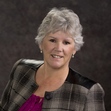Joylene Nowell Butler's Blog, page 5
October 20, 2021
FAUX NEWS NETWORKS presents Hank Quense and… Marcia’s back!
Hello, my name is Marcia Hammerhead, senior book reviewer for Faux News Network. Today, I’ve been tasked with interviewing the author who wrote *How to* *Self-publish and Market a Book*. I don’t know why my editor insists I waste my time on a book like this. Obviously, self-published books are trash and the author who wrote this one, Hank Quense, writes genre trash. So this book must be trash to the second power. Trash squared in other words. On well, I suppose I should get on with it.
Marcia Hammerhead: Mr. Quense, once again it is my ill-fortune to interview you.
Hank Quense: Maria, once again it is my good fortune to talk to you. I trust you’ll do justice to my book.
MH: Hah! Self-publishing is an abomination. The publishing companies do a service to society by restricting the number of genre trash that the public is exposed to.
HQ: Not true, Mary. The publishing companies often act as gatekeepers to restrict what the reading public can access. Publishing companies don’t like the self-publishing option because it challenges their business model and takes away revenue. Since that is the case, let’s hear it for self-publishing!
MH: What a disturbing comment. As if a self-publisher of genre trash is qualified to comment on the business model of successful publishing companies!
HQ: I also self-publish non-fiction, Matilda
MH: My name is Marcia. Have you even tried to obtain a publisher?
HQ: Yeah, I did. My first two books were published by a small indie press. I didn’t like that experience so I decided to go for self-publishing.
MH: Leaving that aside, what does this book of yours offer that isn’t already available on the market?
HQ: It offers quite a lot, Margret. Almost every book on publishing ignores the marketing end. Almost every book on marketing ignores the publishing end. It’s as if publishing and marketing are two separate processes. But they aren’t. The two processes are part of the same project. That’s where my book is different: it integrates both into a single unified project.
MH: Good heavens! Are you claiming your book actually has benefits? You, a scribbler of fictional nonsense, believe you wrote a book that will actually help other writers publish even more trash?
HQ: Yes, I am.
MH: This is nothing less than an assault on society. It’s another step in the downward spiral of civilization. I’m sure there is something that can be done to prohibit the sale of your book.
HQ: Sorry, Margo. There is no way to stop it. It’s already available on a number of websites. If you wish, I’ll give you an autographed copy. Free.
MH: How insulting. As if I would accept it. This interview is over. Where did I put that bottle of gin?
Author note:
For those unconvinced by Matilda’s arguments, here are links to the book: Amazon. Other booksellers.

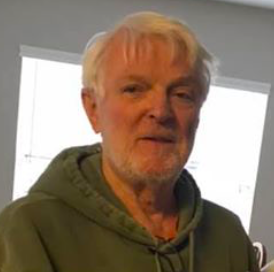 For vacations, Hank and Pat usually visit distant parts of the galaxy. Occasionally, they also time-travel.
For vacations, Hank and Pat usually visit distant parts of the galaxy. Occasionally, they also time-travel.
Besides writing novels, Hank lectures on fiction writing, publishing and book marketing. He is most proud of his talk showing grammar school kids how to create a short story. He used these lectures to create an advanced ebook with embedded videos to coach the students on how to create characters, plots and settings. The target audience is 4th to 7th graders. The book’s title is Fiction Writing Workshop for Kids.
Hank’s Amazon Page Creating a Story
How to Self-publish and Market a Book
Writers & Authors Resource Center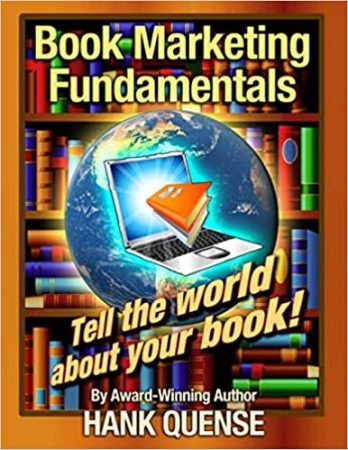
The post FAUX NEWS NETWORKS presents Hank Quense and… Marcia’s back! appeared first on Joylene Nowell Butler.
October 6, 2021
IWSG – October 2021 – Good News
IWSG was created by Ninja Captain Alex J Cavanaugh — because Alex understands we need a safe place to congregate, insecurity is part of our creative nature, and together we’re stronger.
On the first Wednesday of each month, you can write on any subject related to your writing journey or adopt the option of answering the month’s question. Either way, you’re in safe territory.
If this sounds like a good place to be, sign up here.
IWSG’s Twitter handle is @TheIWSG and the hashtag is #IWSG.
Every month, a question is announced that members can answer in their IWSG post. These questions may prompt you to share advice, insight, a personal experience or a story. Include your answer to the question in your IWSG post or let it inspire your post if you are struggling with something to say.
[image error]
October 6 question – In your writing, where do you draw the line, with either topics or language?
Alex’s awesome co-hosts for the October 6 posting of the IWSG are Jemima Pett, J Lenni Dorner, Cathrina Constantine, Ronel Janse van Vuuren, and Mary Aalgaard!
Be sure to visit theInsecure Writer’s Support Group Website!!!

In May’s IWSG post, I announced that my political thriller KISS OF THE ASSASSIN, which I wrote in 1991 (yes, 30 years ago!) was due to be released this year. In July’s IWSG post, I retracted that statement because my Canadian publisher was closing its doors due to unforeseen circumstances. I had to quickly self-publish my previously published ebook Dead Witness because as soon as they closed their doors, all their novels would come down from Amazon.
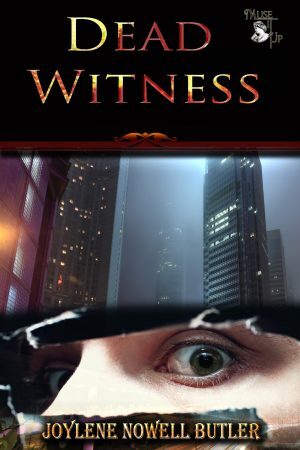
I also mentioned in July that through the help of friends, I self-published with relative ease.
Was I wrong in prematurely announcing the upcoming publication? Should I’ve been closed-mouth?
No.
It’s all about believing in good despite everything. I’ve probably told you this before but my go-to mantra has always been: Everything always works out for me.
Thanks to the generosity of my old publisher who was my editor on this book — who not only told me whom to query, she told me to mention her name as many times as suitable, and state clearly that she is my editor and has just completed edits on my manuscript. “What’s the good of a name if you can’t throw it around?” she said. (I’m paraphrasing)
I queried the publisher that very night. The next day they wrote to say “Welcome!” And that they were placing me on the FastTrak because they trust my editor’s judgement and knowledge.
I felt like… I feel like… (reflection) … I feel like I did the first time I had a novel published. You remember that excitement? You’re afraid to blink in case someone pinches you. You don’t want to say anything to anyone for fear of jinxing yourself.
Last night I’m sitting here, staring at a blank page, wondering if I should avoid looking a gift horse in the mouth and keep my lips sealed. Because, if I do share, what if next month I’m back reporting it was all a fantasy?
I’m taking a leap of faith.
One day down the road I’ll share a bit more about KISS OF THE ASSASSIN. I really did write the ms 30 years ago. I spent 10 years trying to get it published. Everyone said the same thing: Nobody’s interested in a story centred on the Vietnam War.
I believe things work out for a reason. I love KISS OF THE ASSASSIN. I have always loved it. And I never stopped believing I would find it a home.
I know, I could have self-published. That’s a discussion for another day. Please, just hear me now. If you’re languishing over any aspect of your career, stop. Don’t listen to the negative self-talk. Go for a walk, pet the dog, bake some bannock. Trust.
As for this month’s question: I have a very dark thick line that I won’t cross. The list is so long, I won’t bore you. I bet it’s the same list you have. I refuse to exploit human emotions or describe atrocities to man or animal to sell novels.
–namaste
joylene
The post IWSG – October 2021 – Good News appeared first on Joylene Nowell Butler.
September 20, 2021
FAUX NEWS NETWORKS presents: Hank Quense and …
… another book review by our prestigious reviewer, Marcia Hammerhead.
Marcia Hammerhead: if there is anything worse than an author who writes genre trash, it’s a prolific author who writes genre trash. My latest assignment is to interview, once again, prolific author of genre trash, Hank Quense. His newest genre trash is called Moxie’s Problem. According to Quense, it is a coming-of-age novel that takes place against a backdrop of Camelot. If we’re lucky, Quense will have left the lovely Camelot legends unchanged. I doubt that will happen. Well, let’s get this onerous assignment over with.
MH: Mr Quense, in Falstaff’s Big Gamble, you utterly destroyed two of Shakespeare’s most famous plays, Othello and Hamlet. In Wotan’s Dilemma, you forever damaged Richard Wagner’s reputation and his Ring Cycle of operas. What possessed you to write yet another genre novel instead of a literary work that would enshrine your name in history? Nothing says talent like an incomprehensible work that befuddles critics and readers.
HQ: To me, literary works are boring. Thousands of words without any action. On the other hand, my genre trash, as you call it, is filled with action, humor, satire and entertainment. I love writing stories like this, Martha.
MH: Action, humor and entertainment have no place in real literature. True literary novelists rely on many, many words to hold the readers’ attention. Are there any literary elements in your new novel?
HQ: I hope not. The story is about a teenage princess, Moxie, who struggles to come to grips with a reality that is quite different from the world she grew up in, her father’s castle. The book also has a number of unusual activities in it.
MH: I’m sure I’ll regret asking this, but what unusual activities are you talking about?
HQ: In my story I have a retelling of part of the Robin Hood legends. I have the witches from Shakespeare’s MacBeth, and even the Tristan & Isolde legend, sort of. The Saxon invaders concentrate on beating the Knights of the Round Table football team.
MH: Good Heavens! This is even worse than I anticipated. How can you possibly justify all this disconnected nonsense in one story?
HQ: That was the easy part, Margo. I just sprinkled some scifi dust on the plot. Once I did that, I realized this Camelot wasn’t the Camelot of the traditional legends. My Camelot is in a different parallel universe. So all bets are off and I’m limited only by my imagination.
MH: This is an outrage, The Camelot traditions and legends are part of the English-speaking culture. How dare you play fast-and-loose with Camelot.
HQ: Sorry, Margaret. It’s my job to rewrite stuff like this in order to entertain readers.
MH: That’s preposterous. The purpose of literature isn’t to entertain readers, its purpose is to give the readers weighty subjects to discuss at prestigious cocktail parties. Since we are so far apart, I must terminate this interview. You’ve wasted enough of my time. And my name is Marcia!
HQ: Thanks for talking to me, Mary. By the way, my Moxie novel is racking up five-star reviews on Amazon.
MH: A five-star review for your book is an indictment of the vulgar tastes of our society. Good-bye.

 For vacations, Hank and Pat usually visit distant parts of the galaxy. Occasionally, they also time-travel.
For vacations, Hank and Pat usually visit distant parts of the galaxy. Occasionally, they also time-travel.
Besides writing novels, Hank lectures on fiction writing, publishing and book marketing. He is most proud of his talk showing grammar school kids how to create a short story. He used these lectures to create an advanced ebook with embedded videos to coach the students on how to create characters, plots and settings. The target audience is 4th to 7th graders. The book’s title is Fiction Writing Workshop for Kids.
Hank’s Amazon Page Creating a Story
How to Self-publish and Market a Book
Writers & Authors Resource Center
The post FAUX NEWS NETWORKS presents: Hank Quense and … appeared first on Joylene Nowell Butler.
August 3, 2021
ISWG – August 2021 – Canada here I come…
I’m leaving for British Columbia, Canada in a few days and will stay until mid-October when it gets cold. Cluculz Lake is where my husband and I built a log-stick house in 1992. Of course we had help, but we were hands-on. If you’ve read my bio, you’ll know we sold that house and moved to our property across the road in 2017. We planned on building a tiny house but then Covid came and life changed.
In June Westjet finally resumed their flights from Puerto Vallarta to Canada, and my husband flew back to arrange for our RV to be transported from New Brunswick to Manitoba. Then he and a buddy drove to Manitoba and pulled the trailer back to Cluculz Lake. All so that I would have a place to live when I arrived for the summer.
I love my trailer. I spent the summer of 2018 and 2019 living in it while camping in New Brunswick. I love camping. And at my age, the RV is a perfect size. One bedroom, open concept, shower, oven, AC and a heater.

I did a lot of writing sitting at the table, especially on those days when it was too hot to go outside.

Chipman Waterfront Campground is a lovely spot on Salmon River. I spent time with my grandchildren, made lasting friends, and I travelled the Maritimes. Maritimers are very special people.
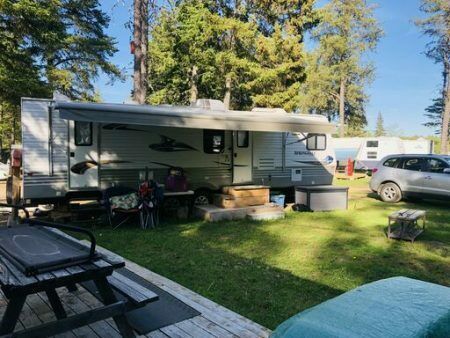

Chipman and Cluculz Lake are a stark contrast to my Bucerias neighbourhood.
Bucerias is a busy little town with the Tepic 200 running through it. Everywhere you look there is expansion. How the infrastructure will manage such growth is anyone’s guess. But changes happen, whether I want them to or not.
[image error]

Most everyone names their home.
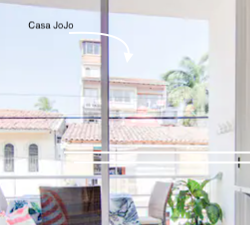

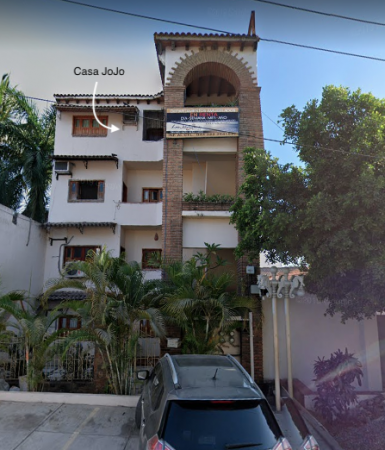

If you have a mind to visit in Bahia de Banderas, there are many lovely pueblos to see.
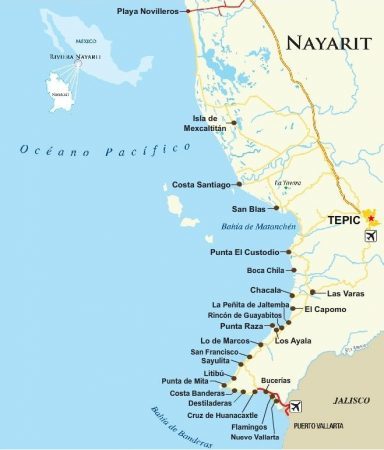

Cluculz Lake is 2 kilometres off Trans-Canadian Highway 16 West that runs north to Alaska. It couldn’t be more different than Bucerias. While there, I won’t hear Mariachi bands playing in the streets, a Quinceañera parade, a horse or a donkey clopping past my door for no apparent reason, or car loudspeakers announcing in Spanish the best cakes, pastries, or fresh fruit for sale in town. I won’t hear any Spanish at all.
I will hear loons cry.
Cluculz Lake


The air is thick with smoke.

There’ll be running water and electricity on the property by the time I get there. And because dear husband is making certain the trailer is set up properly, I won’t have to live in a c-can.
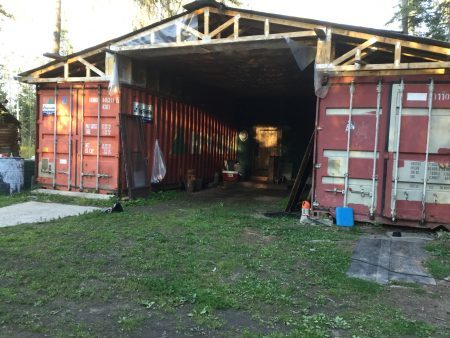
I left Canada in October 2019 never expecting it would be 21 months before I returned. It’s been a long time coming. We tried 3x in 2020 to return, and each time Westjet cancelled our flight. The red tape required so I could be on the plane next week has been exhausting and stressful. Many times I thought it would never happen. Even now I’m concerned. I can’t speak for the rest of the continent, but bureaucracy is alive and well in Mexico and Canada.

I am continuously reading books on my craft. My favourite is Mr. King’s On Writing because he shares about being a writer. For obvious reasons, his life story inspires me. However, having said that, I truly believe you can learn to write well by studying well-written novels in your favourite genres. And I mean really studying.
IWSG was created by Ninja Captain Alex J Cavanaugh — because Alex understands we need a safe place to congregate, insecurity is part of our creative nature, and together we’re stronger.
If this sounds like a good place to be, sign up here.
IWSG’s Twitter handle is @TheIWSG and the hashtag is #IWSG.
Every month, a question is announced that members can answer in their IWSG post. These questions are optional, but maybe they’ll spark an idea. Remember, the question is optional!
August 4 question – What is your favourite writing craft book? Think of a book that every time you read it you learn something or you are inspired to write or try the new technique. And why?IWSG co-hosts for the August 4 posting of the IWSG are PK Hrezo, Cathrina Constantine, PJ Colando, Kim Lajevardi, and Sandra Cox! Be sure to visit the Insecure Writer’s Support Group Website! –namastejoyleneThe post ISWG – August 2021 – Canada here I come… appeared first on Joylene Nowell Butler.
July 20, 2021
BOOK MARKETING 101 by Hank Quense
Once you publish a book, a strange thing happens. You suddenly become the CEO of a company. The mission of that company is to market and sell your book. As the CEO, it’s your job to ensure that your company has a marketing plan.
A marketing plan consists of defining your customers and the market where your book will compete against many other books.
The overall marketing plan consists of three major areas:
Describe the productObjectives and budgetCustomer identificationLet’s take a look at each of these areas. I suggest you copy these bullet items and paste them into a word processor so you’ll have a permanent file you can use to refresh your memory. It will also be useful if you write a second book. A word of caution: the answers to the questions aren’t as simple as they might first appear
Describe the product.
What’s different about it?What benefit does the customer get from buying your book?Why would a customer buy your book instead of a competitor’s book?Who are your competitors?What benefits do they offer?How is your book better than the competitor’s book?Who are your target customersWhat will your book be priced at?How does your price compare to the competitor’s price?What these questions focus on is basic marketing content. A primary marketing area is to identify who the competition is and to differentiate your product from the competitor’s product.
Objectives and Budgets
What are the financial objectives for this plan?How will you measure the results?What are the secondary objectives for this plan?How will you measure the results?What is your marketing budget for year 1?What is your marketing budget for year 2?Another first step in market plan development is to establish a set of financial objectives. As a published author, you own a business. A business needs to set goals for itself. While a business may have non-financial goals, they are secondary to the financial goals. The reality facing a first-time self-published author is that you won’t sell many books in the near term even though, over time, you may indeed sell truckloads of books. For this reason, you should establish goals that recognize this reality and keep your initial goals modest.
An important consideration is that the objectives must be measurable. Another consideration is that they must be reasonable and achievable. Setting goals that can’t be reached is simply an exercise in futility. However, the goals must be hard enough to reach that they will force you to turn off the TV and work on meeting the goals.
For example, your objectives could be to sell X number of books in the first year and bring in $Y in revenue. This would be a valid set of objectives, but they are short term objectives. You should also come up with objectives for a longer term, say five years: sell 10X books and bring in $10Y in revenue.
Since your goals must be measurable, it follows that you should measure them. Whatever book packager you use, it will have sales reports you can peruse to track sales.
Your objectives should be linked with your expense budget and should be updated together.
Who are the book ’ s customers?
Who is the customer for the book?What problem does your book solve for those customers?What sales channels will you use to sell your book?What marketing channels will you use to reach your targeted customers?Let’s talk in more detail about the identification of customers. The first step in the development of a marketing plan is to identify who the customers are and what problem your book will solve for those customers.
If you wrote a non-fiction book, you must have had a set of potential readers in mind. For instance, if you wrote a book about fixing household plumbing, your potential readers are people who live in homes with leaky faucets or pipes. Or people who suspect they will have leak problems someday. Your customers are the plumbing-needy and your book will solve the customers’ needs for plumbing advice.
If you wrote a book on how to do surgery at home on the kitchen table, your target readership is a bit more limited. Possibly it’ll be folks who don’t have health insurance although I’m not sure this book will solve the customer’s problem. It may actually worsen their problem.
If your book is a fictional tale, you have to position it depending upon the potential audience. Romance readers are quite different from mystery fans and so are sci-fi affectionados. In this case, your book will entertain the reader which is a way of solving a problem for the customer. It gives them a break from reality.
If you wrote a children’s book, your customers are not children because children don’t buy books. The parents, grandparents, aunts and uncles are the ones who buy children’s books.
Once you identify your readership, the rest of the marketing plan will be aimed at that group of people, not the general population.
Conclusion
The purpose of these questions and the answers are to get you thinking like the CEO of your business.
Marketing a book can’t be a half-hearted effort involving an occasional email or blog post, stuff you send out when you don’t have anything better to do. You have to dedicate a chunk of time, effort and, yes, money, to market the book.
Remember, no one knows you published a book and no one cares. It’s your job as the CEO to tell people about your book and to make them care enough to buy a copy.
~ ~ ~
My first Kindle Vella project launched has launched. It’s called Berserker Babe, a satiric story of revenge. It’s the first of 5 episodes: https://amazon.com/kindle-vella/product/B098YSJFYT

 For vacations, Hank and Pat usually visit distant parts of the galaxy. Occasionally, they also time-travel.
For vacations, Hank and Pat usually visit distant parts of the galaxy. Occasionally, they also time-travel.
Besides writing novels, Hank lectures on fiction writing, publishing and book marketing. He is most proud of his talk showing grammar school kids how to create a short story. He used these lectures to create an advanced ebook with embedded videos to coach the students on how to create characters, plots and settings. The target audience is 4th to 7th graders. The book’s title is Fiction Writing Workshop for Kids.
Hank’s Amazon Page Creating a Story
How to Self-publish and Market a Book
Writers & Authors Resource Center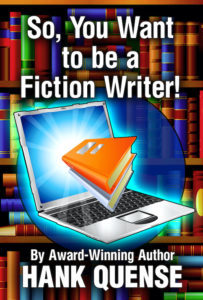
The post BOOK MARKETING 101 by Hank Quense appeared first on Joylene Nowell Butler.
July 10, 2021
Learning How to Be a Kind Person… by Phyllis Zimbler Miller
Learning How to Be a Kind Person Takes a Whole Lifetime.
This thought – “Learning how to be a kind person takes a whole lifetime” – popped into my head, although I don’t know what triggered the thought. Yet the more I pondered it, the more I wanted to write about it.
My first reflection was that my parents taught me and my three younger siblings always to be the good person. If I had to define this advice today, I suppose I would say being the first person to apologize during a fight or being the good person in some situation.
Yet I realized that being a kind person is not the same as being a good person. And the first example that came to me was something for which I have regretted for almost 50 years:
My maternal grandfather Max Fishman and his third wife Dora lived in a senior citizens home in Philadelphia when my husband Mitch and I lived in Philadelphia in the 1970s. As the family history person, I had already tried to get my grandfather to tell me about his childhood in Russia and his escape from the clutches of the czar. Yet it wasn’t until he was quite old that he was willing to be interviewed.
And that’s exactly what I did, which resulted in an example of my not being a kind person:
The family history of his wife Dora was not my family’s history, so I didn’t interview her. In retrospect, her childhood growing up in the cotton fields of Mississippi as a Jew would have been interesting on its own merits. But at the time, even though she wanted to be interviewed, I didn’t see that. And a kind person would have interviewed her even if the material sounded uninteresting. I was not a kind person then.
Years later I got a demonstration of how I could have been kind.
The Shoah Foundation had closed its video interviewing of Holocaust survivors when I finally got a survivor with a unique firsthand account to agree to be interviewed. I wrote a “pitch” letter to the foundation as to why an exception should be made for this individual. The foundation agreed, and a crew came to do the interview, even allowing me to be there to encourage the survivor.
When the interview of the survivor was completed, the film crew turned to the wife of the survivor and asked to record her story. Although her story was not nearly as unusual, I realized that this is what being a kind person meant. The crew was there, and it was simple kindness to also interview her.
Being a kind person means more than just holding the door open for a person or not rushing from the elevator to “beat out” the other patient who has the same doctor’s appointment time as you have. (Yes, I still have to control this unkind impulse.)
Being a kind person means to put yourself in the other person’s mindset and be able to understand and respect that other person. Given the ease today of spreading bile on social media, we need to work even harder on being a kind person.
Recently a close friend has been sharing with me some of the vile things being said online about Meghan, Duchess of Sussex. It is beyond my understanding of why people should say such hurtful things. What purpose does it serve to attack others except solely to spew hatred?
And we have more than enough hatred in the word without these unkind people adding fuel to the fire!
In conclusion, I hope this guest post has provided food for thought about how each one of us can strive in our daily lives to be a kind person. We can do unto others what we would like done unto ourselves!
Phyllis Zimbler Miller is a screenwriter, playwright and book author in Los  Angeles. She is the co-founder of the free nonfiction Holocaust theater project www.ThinEdgeOfTheWedge.com and the co-host of the YouTube podcast NEVER AGAIN IS NOW at https://b.link/NeverAgainIsNowpodcast
Angeles. She is the co-founder of the free nonfiction Holocaust theater project www.ThinEdgeOfTheWedge.com and the co-host of the YouTube podcast NEVER AGAIN IS NOW at https://b.link/NeverAgainIsNowpodcast
The post Learning How to Be a Kind Person… by Phyllis Zimbler Miller appeared first on Joylene Nowell Butler.
July 6, 2021
IWSG – July 2021- Overcoming Difficulties
IWSG was created by Ninja Captain Alex J Cavanaugh — because Alex understands we need a safe place to congregate, insecurity is part of our creative nature, and together we’re stronger.
On the first Wednesday of each month, you can write on any subject related to your writing journey or adopt the option of answering the month’s question. Either way, you’re in safe territory.
If this sounds like a good place to be, sign up here.
IWSG’s Twitter handle is @TheIWSG and the hashtag is #IWSG.
Every month, a question is announced that members can answer in their IWSG post. These questions may prompt you to share advice, insight, a personal experience or a story. Include your answer to the question in your IWSG post or let it inspire your post if you are struggling with something to say.
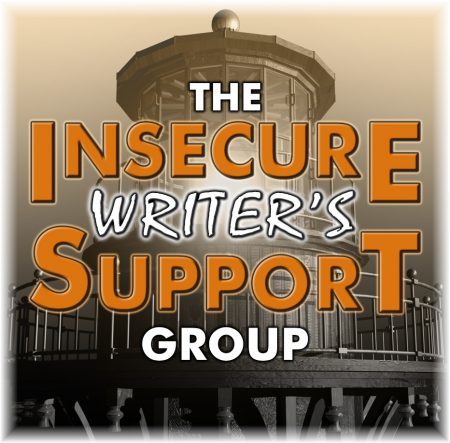
Remember, the question is optional!
July 7 question – What would make you quit writing?My awesome co-hosts for the July 7 posting of the IWSG are Pat Garcia, Victoria Marie Lees, Chemist Ken, and Louise – Fundy Blue! Be sure to visit the Insecure Writer’s Support Group Website! –namastejoylene
In May, I announced that my political thriller Kiss of the Assassin was coming out in 2021. Unfortunately, that won’t be happening. The publisher of my ebook Dead Witness, who agreed to publish Kiss of the Assassin, closed their doors due to unforeseen circumstances that I’ll not get into. After spending the first day wallowing in self-pity, I reached out to Lea Schizas, Hank Quense, and Vicki L. Smith for help. Thank you all! Suffice to say, I spent the last week self-publishing Dead Witness and now it’s back up on all Amazon sites.
Lea also helped me create an ad on Facebook which was quite exciting, but it won’t be up for a while because I’ve run into a snag. My payment isn’t going through. That would be weird, except it’s actually a common occurrence in Mexico. Mexico does not like 1-800 numbers either. If you run into a snag in Canada or United States, you simply call a 1-800 number and talk to an actual person. I can’t do that from here. I’ve been trying all morning. Maybe there are no actual people at Facebook, or as Gary Philip Pennick likes to refer to them: Farcebook?
On a related subject: If you’re looking for a competent and professional editor at a reasonable price, please contact me at joylene Dot butler at Gmail Dot com, and I will pass along Kiss of the Assassin’s content editor’s email address. Les Tucker was a pleasure to work with. He was thorough, adamant, kind and clear about what he deemed necessary to improve my manuscript. He was open to discussions. Thank you, Les.
If you’ve ever lost your publisher, you’ll know I’ve lost all my reviews too. This leads me to beg ask if you’ve previously reviewed Dead Witness, would you consider copying and pasting your review at the Amazon site of your choice: Amazon.com, Amazon.ca, or Amazon.oc.uk? If you’ve read the book and enjoyed it, would you consider posting a review?
If you’re a non-writer and you’re wondering why this is important, it’s because reviews influence visibility. The more reviews a book receives, the more said book appears in the amazon search engine. IE. If you go to Amazon’s ebook search window and type Dead Witness, chances are my novel won’t appear for 5 or 6 pages. If you type suspense thriller, it will take hundredths of pages before my book showed up. And that’s a shame because Dead Witness is a good read.
(I just tried myself, and Dead Witness appeared on the first page. That’s probably because I’m using my MacBook and I’m logged into my Amazon account)
As for Kiss of the Assassin no longer on the verge of being published, I’m sad, yes, but hopeful. I wrote this manuscript in the late 90s. It’s always been an important part of my life. An epic story. I have faith that I will find it a home.
What would make me quit writing?
Illness.A devasting accident that left me incapacitated.Death.
The post IWSG – July 2021- Overcoming Difficulties appeared first on Joylene Nowell Butler.
June 20, 2021
An Overview of Story Creation by Hank Quense
Let’s assume you are a new (or inexperienced) fiction writer. You probably know that creating a story requires a great deal of work and thinking. You may not know that the work involved is the same whether you are creating a short story, a novel, a play, a script or even a memoir.
“How can that be?” you ask. Simply because a novel, a script, a memoir, a play, a short story are all stories. And no matter what type of story you have in mind, each requires a number of common elements such as characters, plots, scenes, settings, character arcs and more.
The only difference between these types of stories is the output. What the manuscript looks like, in other words. The manuscripts for a novel and for a play will look very different, but the process of creating those manuscripts is exactly the same.
Let’s put that issue aside and discuss a different topic. Stories are the result of three separate creative processes:
Ideas
Story design
Storytelling techniques
Let’s discuss each one of these processes.
IdeasA mistake many rookie writers make is to start writing a story when they have only a single idea. While a single idea can be the genesis of a story, no story can be written from a single idea. A short story needs perhaps a dozen ideas while a novel requires many more than a hundred ideas. The writer needs ideas about the character development, plot events, the setting, the character arc and the scene designs. To gather all these ideas requires time and a great deal of thinking. This is where a notebook (a real one or a digital one) comes in handy. You never know when a great idea when pop into your head.
Story DesignWhat is story design? It’s the process of developing all the story elements such as characters, plot events and so forth. To put it another way, story design is where the writer incorporates all these ideas into the story.
I’m a planner (as opposed to a panster) so I spend a lot of time on story design before I attempt to write the first draft. In most cases the story design process for a novel consumes three months or more. A major portion of this time is spent on determining the scenes I need to get the characters from the start of the story to the climactic scenes at the end.
StorytellingNo matter how great your ideas are and no matter wonderful your story design is, if you don’t have the storytelling skills to hold the reader’s attention, your story is doomed. Storytelling involves the use of a number of techniques that include point-of-view, foreshadowing, show-don’t-tell, stimulus & reaction, dialog vs exposition among other topics.
One storytelling skill that isn’t discussed much in writing books is the development of a writing voice. Writers can’t tell a story by using their speaking voice: they have to develop a separate and distinct writing voice. The reason for this is that our speaking voice tends to be boring. Very boring. Want proof? Eavesdrop on the conversation between a few strangers. I’ll bet you it won’t hold your interest for long. So imagine trying to read a story written in a speaking voice.
I believe that once a writer understands the creative processes required to produce a story, the work can go forward more easily and more smoothly.
This article is based on material in my book Creating Stories.
You can find more valuable information on my Writers and Authors Resource Center.


For vacations, Hank and Pat usually visit distant parts of the galaxy. Occasionally, they also time-travel.
Besides writing novels, Hank lectures on fiction writing, publishing and book marketing. He is most proud of his talk showing grammar school kids how to create a short story. He used these lectures to create an advanced ebook with embedded videos to coach the students on how to create characters, plots and settings. The target audience is 4th to 7th graders. The book’s title is Fiction Writing Workshop for Kids.
Hank’s Amazon Page Creating a Story
How to Self-publish and Market a Book
Writers & Authors Resource Center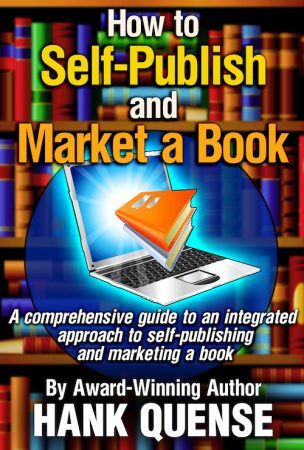
The post An Overview of Story Creation by Hank Quense appeared first on Joylene Nowell Butler.
June 10, 2021
How Has the Pandemic Changed Us by Phyllis Zimbler Miller

Recently an interviewer asked me how I thought the pandemic had changed me. I don’t remember how I answered, although afterwards I thought about this question both as applying to individuals and to writers.
As individuals we probably have many different answers, perhaps ranging from becoming more aware of our actions (wearing masks) to what we can do by ourselves rather than with others.
Hopefully embracing more gratitude in our lives is one of the results for us as individuals. This can be as simple as, once vaccinated, being able to pass other apartment residents in the building halls without worrying whether we are transmitting the virus to each other.
Yet I think for those of us who are writers how the pandemic may have changed us can have a wider meaning. Perhaps we have come to a better understanding of how small things can have a great impact.
I found the following quote in an article at fs.blog:
“The butterfly effect is the idea that small things can have non-linear impacts on a complex system. The concept is imagined with a butterfly flapping its wings and causing a typhoon.
“Of course, a single act like the butterfly flapping its wings cannot cause a typhoon. Small events can, however, serve as catalysts that act on starting conditions.”
I don’t write about politics, so please accept that the following is for explanation purposes only:
The seemingly politicalizing of wearing masks during the pandemic, which at first may have seemed a small thing, continues to affect the rate of vaccinations in the U.S. and therefore the timeline of return to near normalcy in American life.
Closer to home for me is the rapid rise of anti-Semitic outpourings. It is NOT true that “sticks and stones may break my bones but names will never hurt me.” Hateful words way too easily turn into hateful acts that way too easily turn into deadly acts.
The new social media campaign of the Holocaust Claims Conference is #ItStartedWithWords – which is what Hitler used to turn an entire nation into mass murderers.
We as writers have a social responsibility to use our words carefully. This doesn’t mean we can’t have villains in our fiction or nonfiction. It does mean that we have to be careful not to have the words and actions of those villains encourage hurtful words and actions in real life.
Here is an example from the past:
In Harriet Beecher Stowe’s 1852 novel UNCLE TOM’S CABIN, some slaveholders quote the Bible as the basis for their right to own slaves. Stowe is very careful to balance this portrayal with others who make it clear that the Bible cannot be used to justify slavery in the years leading up to the Civil War.
During the May 2021 Paley Center Impact online panel “Media’s Role in Identifying, Explaining, and Combating Antisemitism,” one panelist said that the media needs to use more nuanced reporting. But I disagree.
Definition of nuanced from the Merrian-Webster dictionary:
having nuances: having or characterized by subtle and often appealingly complex qualities, aspects, or distinctions (as in character or tone)
I do not believe that, as writers, we can rely on readers to pick up on nuances that require delving into the layers below the surface of our words. That is expecting too much of most of our readers – and we cannot prevent the majority of our readers from missing the nuances.
We need to be careful to say what we mean and mean what we say. There should be no ambiguity as to whether we are slipping our own prejudices into our writing so as to (perhaps subtly) influence people to believe in “our side.” (Of course, if you are writing something that is purposely trying to sway opinion, that is another matter.)
Small words can lead to very large hurts (harm), and as writers coming out of the pandemic, we should strive to ensure our words inform and entertain – and that our words do not create a typhoon from the flapping of a butterfly’s wings.

Phyllis Zimbler Miller is a screenwriter, playwright and book author in Los Angeles. She is the co-founder ofthe free nonfiction Holocaust theater project www.ThinEdgeOfTheWedge.com to combat anti-Semitism and hate.
The post How Has the Pandemic Changed Us by Phyllis Zimbler Miller appeared first on Joylene Nowell Butler.
June 2, 2021
IWSG – JUNE 2021- God Bless Editors
I’m not answering this month’s question “For how long do you shelve your first draft, before reading it and re-drafting?” because I’m too tired to correlate any sort of thought process onto paper. I hate to blame yet another “issue” on Covid-19, however… (I apologize for rambling.) Have you met anyone that isn’t affected by this pandemic? What a huge influencer it’s been. It’s brought out the worst and the best in people.
I’m through the first stages of editing Kiss of the Assassin. Les Tucker, an excellent content editor with my Canadian publisher, encouraged me to cut as many pronouns as I could. I started off by dreading the idea. Pronouns are a writer’s best friend, correct? I had over 15,000.
I cut hundreds. I cheated a bit, (it felt like cheating) when I switched she to Marina, and he to Mateo. But I soon got into the groove, so much so I then went on to hunt for every unnecessary filter word, adverb, and adjective I could find. The manuscript was almost 2000 words lighter by the time I finished. In fact, I had to shout, “Stop editing.”
Now while I wait for my line editor to send the manuscript back I’m thinking, “God bless you, Les Tucker.”
I began the first draft of Kiss of the Assassin in 1991. Some of you weren’t even born yet. Our house was full of teenage boys–who have teenagers and grown children of their own now. I do remember feeling exhausted. Yet, before I even began Kiss of the Assassin, I’d already written two full manuscripts, Always Father’s Child and Dead Witness 2008, all the while managing a house, a job, 2 cats, 2 dogs, 5 kids and a husband.
Then, for 10 years publishers told me, “Nobody’s interested in Vietnam, sorry.”
Kiss of the Assassin is about how the war changes the lives of two enemies, a Soviet spy and a Mexican-American special forces sergeant. It’s a love story with an X-rating due to extreme violence and coarse language. I’m generally not that type of writer, but I love this story and was compelled to write it. War is ugly. Love is beautiful.
Today I’d like to take a moment to say “thank you” to all the editors I’ve worked with. I’m a better writer because of you.
Have a great day, everyone.

IWSG was created by Ninja Captain Alex J Cavanaugh — because Alex understands we need a safe place to congregate, insecurity is part of our creative nature, and together we’re stronger.
On the first Wednesday of each month, you can write on any subject related to your writing journey or adopt the option of answering the month’s question. Either way, you’re in safe territory.
If this sounds like a good place to be, sign up here.
IWSG’s Twitter handle is @TheIWSG and the hashtag is #IWSG.
Every month, a question is announced that members can answer in their IWSG post. These questions may prompt you to share advice, insight, a personal experience or a story. Include your answer to the question in your IWSG post or let it inspire your post if you are struggling with something to say.
Remember, the question is optional!
June 2 question – For how long do you shelve your first draft, before reading it and re-drafting? Is this dependent on your writing experience and the number of stories/books under your belt?Our co-hosts for the June 2 posting of the IWSG are J Lenni Dorner, Sarah Foster, Natalie Aguirre, Lee Lowery, and Rachna Chhabria! Besure to visit the Insecure Writer’s Support Group Website!
–namastejoylene
The post IWSG – JUNE 2021- God Bless Editors appeared first on Joylene Nowell Butler.

